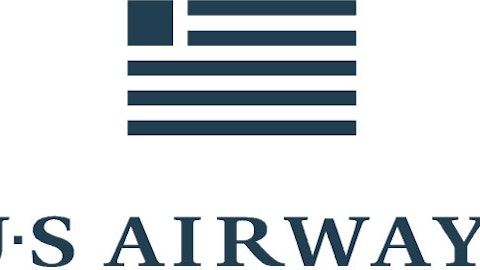Every investor would love to stumble upon the perfect stock. But will you ever really find a stock that provides everything you could possibly want?
One thing’s for sure: You’ll never discover truly great investments unless you actively look for them. Let’s discuss the ideal qualities of a perfect stock, then decide if Delta Air Lines, Inc. (NYSE:DAL) fits the bill.

The quest for perfection
Stocks that look great based on one factor may prove horrible elsewhere, making due diligence a crucial part of your investing research. The best stocks excel in many different areas, including these important factors:
Growth. Expanding businesses show healthy revenue growth. While past growth is no guarantee that revenue will keep rising, it’s certainly a better sign than a stagnant top line.
Margins. Higher sales mean nothing if a company can’t produce profits from them. Strong margins ensure that company can turn revenue into profit.
Balance sheet. At debt-laden companies, banks and bondholders compete with shareholders for management’s attention. Companies with strong balance sheets don’t have to worry about the distraction of debt.
Money-making opportunities. Return on equity helps measure how well a company is finding opportunities to turn its resources into profitable business endeavors.
Valuation. You can’t afford to pay too much for even the best companies. By using normalized figures, you can see how a stock’s simple earnings multiple fits into a longer-term context.
Dividends. For tangible proof of profits, a check to shareholders every three months can’t be beat. Companies with solid dividends and strong commitments to increasing payouts treat shareholders well.
With those factors in mind, let’s take a closer look at Delta Air Lines, Inc. (NYSE:DAL).
| Factor | What We Want to See | Actual | Pass or Fail? |
|---|---|---|---|
| Growth | 5-year annual revenue growth > 15% | 13.9% | Fail |
| 1-year revenue growth > 12% | 4.4% | Fail | |
| Margins | Gross margin > 35% | 20.0% | Fail |
| Net margin > 15% | 2.8% | Fail | |
| Balance sheet | Debt to equity < 50% | NM | NM |
| Current ratio > 1.3 | 0.62 | Fail | |
| Opportunities | Return on equity > 15% | NM | NM |
| Valuation | Normalized P/E < 20 | 14.61 | Pass |
| Dividends | Current yield > 2% | 0.0% | Fail |
| 5-year dividend growth > 10% | 0.0% | Fail | |
| Total score | 1 out of 8 |
Source: S&P Capital IQ. NM = not meaningful due to negative shareholder equity. Total score = number of passes.
Since we looked at Delta Air Lines last year, the company hasn’t been able to regain the two points it lost from 2011 to 2012. Yet despite continuing to have negative shareholder equity, the stock has soared 75% over the past year.
Delta has ridden the wave of extremely strong performance among airline stocks in general. Yet to an even greater extent that its peers, Delta Air Lines, Inc. (NYSE:DAL) has been able to convert ancillary income from baggage fees and other charges into profits. By contrast, rival United Continental Holdings Inc (NYSE:UAL) has reaped plenty of income from baggage fees but remains mired in the challenges of fully integrating its merger from a few years ago. Southwest Airlines Co. (NYSE:LUV), long the darling in the industry from an investor perspective, finds itself on the outside looking in, in large part because it has chosen not to charge revenue-producing fees like per-bag charges.
But Delta isn’t without faults. Lately, it has spent huge amounts of money on capital expenditures, and between that and debt repayments, it doesn’t have that much money left for shareholders. That explains its negative shareholder equity, and it heightens the need for Delta Air Lines, Inc. (NYSE:DAL) to boost cash flow to leave more for investors in the future.
Delta’s recently proposed joint venture with Virgin Atlantic could help Delta Air Lines, Inc. (NYSE:DAL) compete better on trans-Atlantic routes. In some ways, the move resembles a lighter version of what American and US Airways Group, Inc. (NYSE:LCC) are doing in their merger, as it captures some of the same benefits without drawing quite as much antitrust attention as a full-scale merger would. Delta hopes the deal will go through by the end of the year.
For Delta to improve, it needs to get its fundamentals back in line with its prospects. If it can find ways to grow not just revenue but also profits, with an emphasis on providing shareholder value, then Delta Air Lines, Inc. (NYSE:DAL) has room to soar back toward perfection.
Keep searching
No stock is a sure thing, but some stocks are a lot closer to perfect than others. By looking for the perfect stock, you’ll go a long way toward improving your investing prowess and learning how to separate out the best investments from the rest.
The article Has Delta Air Lines Become the Perfect Stock? originally appeared on Fool.com.
Fool contributor Dan Caplinger has no position in any stocks mentioned. The Motley Fool recommends Southwest Airlines.
Copyright © 1995 – 2013 The Motley Fool, LLC. All rights reserved. The Motley Fool has a disclosure policy.


